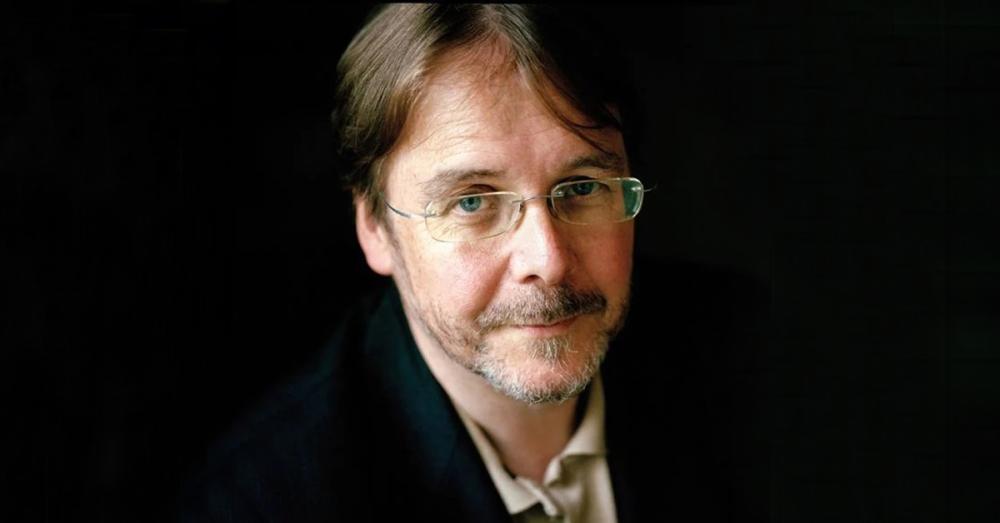
A KÖLTŐ ÉS A NEMZET
Romantikus szerepminták
A romantika új „ihletpoétikát” fogalmazott meg. A múltat felidéző profetikus bölcs ossziáni figurája a jövőt megjósló ifjú látnok alakjává fiatalodott, s a költőkre úgy tekintettek, mint a közönségüket ösztönző és lelkesítő egyedülálló erő birtokosaira, akik „lelkük kovácsműhelyében kovácsolják fajuk lelkiismeretét” (James Joyce). Byron mintája ebben a tekintetben különösen erőteljes volt, akárcsak Shelley prométheuszi ideálja. Előadásom ebben a kontextusban helyezi el Petőfit, tekintettel az 1848-as magyar nacionalizmus sajátos jellegére, amely inkább lovagi, mintsem demokratikus értékekre épült.
Joep Leerssen kultúrtörténész, összehasonlító irodalomtörténész, az Amszterdami Egyetem Európai Tanulmányok Tanszék professzor emeritusa, emellett a Maastrichti Egyetem részmunkaidős professzor emeritusa. Pályája során a Harvardon, Cambridge-ben, Göttingenben és a párizsi ENS-ben is dolgozott vendégprofesszorként. Leerssen fő kutatási területe az európai multinacionalitás történelmi tapasztalatának, Európa identitásának, mint az észlelések és reprezentációk fejlődő, sokszereplős diskurzusának vizsgálata. A nacionalizmus transznacionális történetének, illetve az imagológiának, vagyis az etnikai és kulturális (ön)sztereotípiák kritikai elemzésének világszerte egyik legelismertebb szakértője. Két jelentős tudományos elismerése (a Spinoza-díj és a Holland Királyi Akadémia professzori címe) után járó támogatás segítségével indította el 2009—2010-ben az „összekapcsolódó nacionalizmusok” kutatási programot (Study Platform on Interlocking Nationalisms), amelynek eddigi legjelentősebb teljesítménye a kétkötetes Encyclopedia of Romantic Nationalism in Europe (2015—2018). Leerssen további könyvei: Remembrance and Imagination (1996), De Bronnen van het Vaderland (2nd ed. 2011), Spiegelpaleis Europa (3rd ed. 2015), National Thought in Europe (3rd ed. 2018), Imagology and The Rhine: National Tensions, Romantic Visions (2007 és 2017, mindkettő közösen szerkesztve Manfred Bellerrel) és Commemorating Writers in 19th-Century Europe (Leerssen és Ann Rigney, 2014).
THE POET AND THE NATION
Romantic role models
Romanticism formulated a new ‘poetics of inspiration’. The Ossianic figure of the prophetic sage recalling the past was rejuvenated into the figure of the youthful visionary predicting the future, and poets were seen as having a unique power to inspire and enthuse their audiences and to “forge in the smithy of their souls the conscience of their race”. The image of Byron was particularly powerful, as was the Promethean ideal of Shelley. My lecture will position Petőfi in this context, given the unique nature of 1848 Hungarian nationalism as predicated on chivalric rather than demotic values.
Joep Leerssen is a cultural historian with a training in Comparative Literature. He is currently Emeritus Professor of European Studies at the University of Amsterdam, additionally holding a part-time Emeritus Professorship at the University of Maastricht. In course of his professional career, he has held visiting appointments at Harvard, Cambridge, Göttingen, and the ENS (Paris). Leerssen studies how Europe’s multinationality has been experienced in history, tracing Europe’s identity as an evolving multi-party discourse of perceptions and representations. He is one of the world’s leading experts in imagology – the critical analysis of ethnic and cultural (self-) stereotyping – and the transnational history of nationalism. With the funding attached to two major academic awards (the Spinoza Prize and a Royal Netherlands Academy Professorship) he set up the Study Platform on Interlocking Nationalisms in 2009-2010; its flagship publication to date is the Encyclopedia of Romantic Nationalism in Europe (2015-18). Among his other books are Remembrance and Imagination (1996), De Bronnen van het Vaderland (2nd ed. 2011), Spiegelpaleis Europa (3rd ed. 2015), National Thought in Europe (3rd ed. 2018), Imagology and The Rhine: National Tensions, Romantic Visions (2007 and 2017, both co-edited with Manfred Beller) and Commemorating Writers in 19th-Century Europe (2014, co-edited with Ann Rigney).